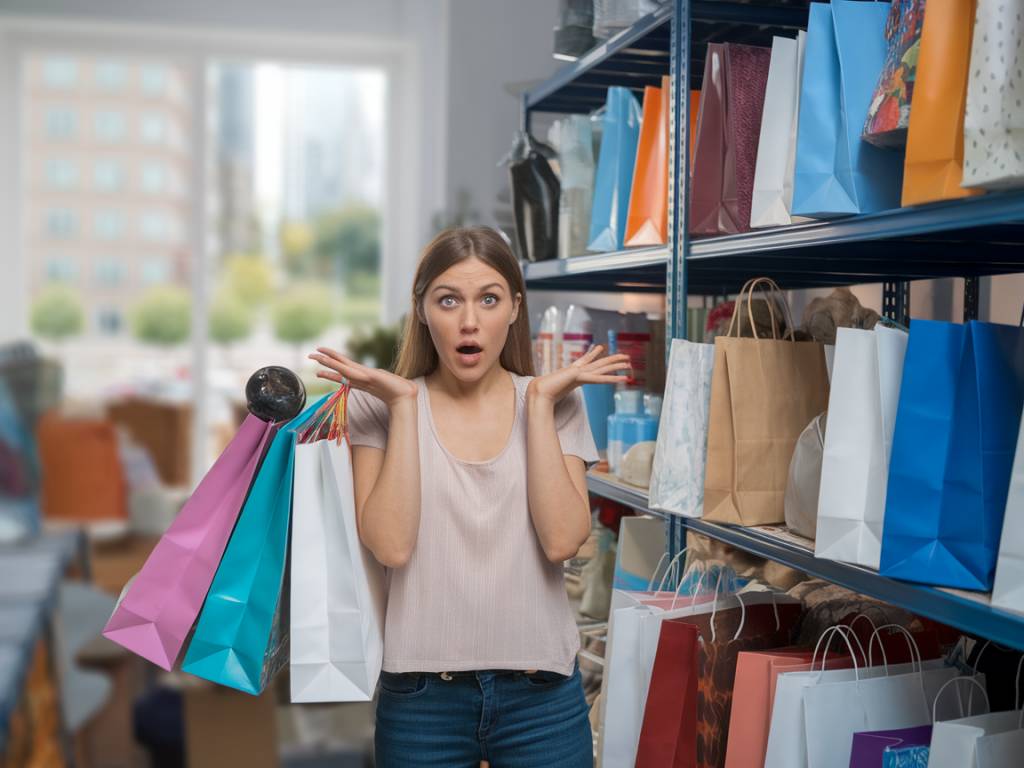How Your Shopping Habits Influence Your Mental Well-Being
Shopping. Whether it’s a delightful weekend spree with friends, a quick hop onto your favourite online store, or a spontaneous splurge during a lunch break, the act of purchasing something new can often feel like medicine for the soul. But have you ever stopped to think about how your shopping habits directly impact your mental health? Let’s dive in and discover how your buying behaviour could be enhancing—or possibly sabotaging—your overall well-being.
The Thrill of a Purchase: Why It Feels So Good
Ever experienced that little rush of excitement after buying something new? That feeling isn’t just in your head; it’s chemistry! Shopping, especially for something you’ve been eyeing for a while, triggers a release of dopamine, the “feel-good” hormone. This explains why a simple purchase can sometimes instantly boost your mood.
However, there’s a catch. While that dopamine hit can feel amazing in the moment, it’s often short-lived. If shopping becomes a regular coping strategy for stress or sadness, the emotional boost diminishes over time, leaving you wanting more just to feel the same level of happiness. Sound familiar?
Emotional Shopping vs. Mindful Shopping
Let’s talk about emotional shopping—the habit of browsing or buying to soothe feelings like anxiety, boredom, or disappointment. Picture this: You’ve had a stressful day at work, your boss piled on extra tasks, and your inbox is a jungle of unread emails. To escape, you grab your phone, browse through a clothing store, and before you know it, you’ve added that “must-have” handbag to your cart.
While emotional shopping may temporarily take the edge off, it can lead to what experts call buyer’s remorse. That wave of guilt after a purchase you didn’t really need? Yep, that’s it. On the flip side, mindful shopping—a deliberate, thoughtful approach to buying—has been shown to positively impact mental well-being. It involves asking yourself questions like, “Do I really need this?” or “Will this bring genuine value to my life?” before making a purchase.
Minimalism: The Unexpected Mental Cleanser
Have you ever walked into a cluttered room and felt immediately overwhelmed? Now imagine your wardrobe or vanity overflowing with items you barely use. Overconsumption often leads to clutter, which can create feelings of stress and anxiety. Minimalism, or the art of owning less but better-quality items, offers a refreshing antidote to this.
By adopting a “less is more” philosophy, you can focus on curating a collection of meaningful possessions that truly bring you joy. Whether it’s investing in a timeless trench coat that elevates every outfit or choosing skincare products that genuinely work for you, intentional purchases can have a calming effect, helping you feel more in control of your space and your life.
The Role of Social Media: A Blessing or a Curse?
Let’s be honest—social media is a double-edged sword when it comes to shopping habits. Platforms like Instagram and TikTok are filled with influencers showcasing their latest hauls and perfectly curated #OOTD (outfit of the day) posts. While they can inspire great style ideas, they can also fuel FOMO (fear of missing out) and push you to buy things that don’t align with your actual needs.
Instead of falling for the pressure to keep up, why not flip the script? Use social media as a tool for discovering sustainable brands, tracking sales on items you’ve been saving for, or learning how to mix and match pieces you already own. And remember, no trend is worth sacrificing your mental peace—or your bank account.
Shopping as Self-Care: Healthy Habits That Uplift
Can shopping be a form of self-care? Absolutely! The key lies in setting boundaries and shopping with intention. Engaging in retail therapy isn’t inherently bad; in fact, it can be a lovely way to treat yourself on special occasions or even practice gratitude for your hard work.
Here are a few strategies to turn shopping into a mentally healthy activity:
- Create a wishlist and stick to it. This reduces impulse purchases while giving you something to look forward to.
- Set a budget for non-essential purchases each month. This ensures you stay financially stress-free while indulging in the occasional splurge.
- Focus on quality, not quantity. Opting for versatile, timeless pieces over fast fashion helps you feel better about your choices long-term.
- Shop with friends or loved ones. A shared outing can transform shopping into a bonding experience, making it less about buying and more about connection.
Breaking the Cycle of Overspending Guilt
If you’ve ever gone overboard during a shopping spree, you’re not alone. But dwelling on guilt only adds to mental stress. Instead, try turning the experience into a learning opportunity. Ask yourself: “Why did I make this purchase? Was it to satisfy an emotional need? Am I trying to fill a void?”
Be kind to yourself. Changing habits is a process, and slip-ups are normal. Setting personal rules, like sleeping on a purchase for 24 hours before checking out, can help. Over time, you’ll find that intentional shopping leads to both financial savings and emotional balance.
The Intersection of Shopping, Health, and Happiness
Shopping, like anything else, has the potential to either enhance our lives or add unnecessary stress. By recognising the relationship between your shopping habits and your mental health, you can make more intentional decisions that lead to long-term happiness and peace of mind. Whether it’s switching to mindful shopping practices, clearing out clutter, or rethinking your relationship with social media, small tweaks can make all the difference.
So, the next time you find yourself browsing the aisles or navigating an online sale, pause for a moment and reflect. Is this purchase truly going to make you happier, or is it just a quick fix? When you shop with awareness, your mind—and your wardrobe—will thank you.
